Meet our Future Farming Trustees - John van der Linden
John van der Linden, from sheep & beef to viticulture.
Added 4 years ago
By Brenda Newth
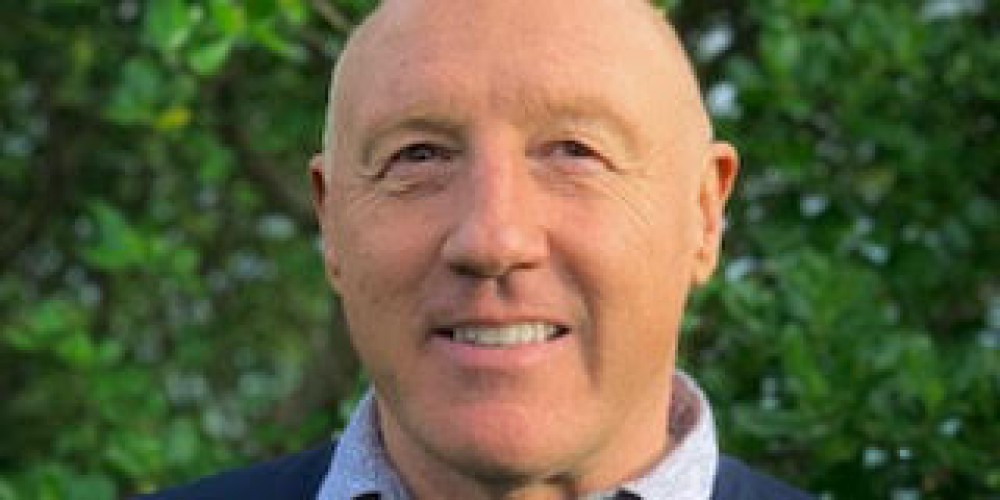
What is your background?
I grew up on a farm in the Esk Valley, Hawke’s Bay where I was involved with a range of farming and horticultural activities – sheep, cattle, deer, goats, silviculture, cropping, kiwifruit, viticulture and a family winery, Linden Estate. I studied at Massey University, completing a Bachelor of Horticultural Science. I lectured at EIT in horticulture, viticulture, agriculture, and Growsafe for 10 years.
I also established and managed our own two vineyards; one in the Esk Valley, and one in Ngatarawa Road, and have worked as a viticulturist for many well-known brands including Church Road, Crossroads Estate, Villa Maria, and others. I am currently working as a Technology Specialist for Corteva Agriscience.
As well as being a current HBFF trustee, I am also currently a viticultural industry representative on the University of Auckland-run $16.3 million Maaratech Project that has developed ‘automation and human assist technology’ via augmented reality glasses to help train and carry out quality control of horticultural labour operations in the viticulture, pip fruit and berry fruit sectors.
In June 2022, I retired from the LandWISE board after five years’ service. I have also recently been involved with other wine industry groups such as the NZ Winegrowers Research Committee, HB VINE Committee (Viticulture, Innovation, Networking and Excellence) and the Hawke’s Bay Gimblett Gravels Technical Committee.
Do you farm, if so what?
I am not currently farming, but have been involved with establishing and managing our own vineyards and farming, as described above. I am still closely involved with farming and horticultural systems as part of my current role.
Corteva is the naming right sponsor for the NZ Corteva Young Viticulturist of the Year competition and I am closely involved with the education days, the judging, and marking the assessments for the six regional and national final events.
Why are you part of the FFT?
I believe in ‘Brand Hawke’s Bay’. Hawke’s Bay is a very diverse region that produces outstanding primary produce and I would like to help build the profile of our farmers and growers. Ultimately, I would like to see the formation of a distinctly HB brand e.g. ‘Proudly Hawkes Bay!’ or ‘Pure Hawke’s Bay’ which is used to promote our region’s quality produce.
There are some great things happening with our innovative farmers and growers and I want to help tell some of the stories. I also want to encourage farmers and growers to improve their outcomes e.g. economic, social, and environmental while building a higher value Hawke’s Bay brand.
The French winemakers use the term ‘terroir’ which describes how the unique influencers of a vineyard’s soil, climate and people (including the way that the crop is managed) combine to produce the unique wine character. The exciting thing about farming and growing is that the terroir also influences the way that our HB primary produce tastes and looks too. ‘Terroir’ is something that we can use to add value to our distinctly Hawkes’ Bay produce.
What are the biggest issues farmers are facing, and how can FFT help?
Building resilience to cope with the myriad of challenges that are out there, including climate, water shortage, labour shortages, higher input costs, compliance, etc.
There are a lot of innovative practices that our farmers and growers are already doing and so by highlighting these, then this will encourage others to also incorporate these into their farming systems.
I am a great believer in continuous improvement; ‘there is always a better way’! One only has to look back a few years to see how our farming and growing systems have evolved to know that there will be more beneficial changes ahead, so I want our primary producers to play their part in creating positive change to benefit all.
With this in mind, I also believe in ‘appropriate’ technology. Often ‘simple is best’ and especially approaches that work with nature, not fight against it. Often a ‘no-tech’, or ‘low-tech’ solution can be more effective than jumping to a high-tech’ solution.
Also, we need to look at a systems approach to solving problems, as this will often solve several problems at once, rather than just one problem.
Be the first to leave a comment.
Leave a comment
All comments are reviewed before they are published on the website. Your email address will not be published.
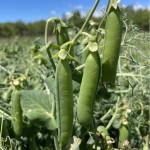
Carbon Positive Trial Update – February 2025
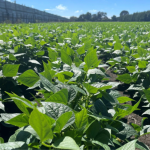
Carbon Positive Update

Community Engagement and Knowledge Sharing Strengthen the Carbon Positive Project
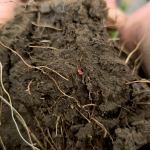
Are We Changing Soil Carbon Yet? Three Years In, the Jury’s Still Out
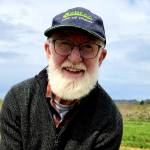
Farewell to Trustee Phil Schofield – A Foundational Leader of the HBFFCT
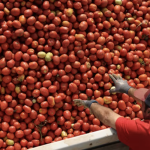

Join the conversation